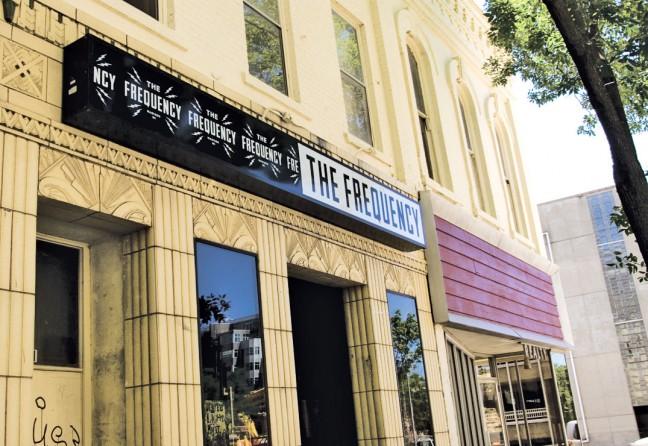Despite Madison’s complicated past with hip-hop and those who make it, the 608’s latest crop of artists have potential to produce some serious noise locally, nationally and perhaps even globally.
Madison is, at times, a reluctant setting to a number of emcees and producers who make all kinds of music within the genre. From politically-charged Rich Robbins to heavy-hitters like Trebino, there’s no shortage of local tunes for dedicated fans to listen to.
On the artists’ side, however, things aren’t so cheery. While things have improved moderately over the past few years in terms of recognition and places to perform, it’s a delicate balance.
Just a year ago, artists almost lost The Frequency as a venue for their genre after a hasty a ban, but got it back after an even hastier apology and withdrawal from the owner. This was an occurrence that many consider to be an echo of the city’s negative perception of the genre and those that practice it.
This is where the Urban Community Arts Network comes in. According to its President Karen Reece, UCAN provides numerous services for the Madison community ranging from working with local schools to helping local artists gain recognition.
Their most prominent task in recent years, though, has been assembling a task force comprised of local officials as well as members of the hip-hop community to ensure the genre is best represented and that its shows are safe for everyone.
Still, even with their best intentions and intent to reach out, UCAN hasn’t quite been able to form this task force. Reece said the timing has never been quite right, and despite their enthusiasm and commitment, they’ve yet to garner an equal response on the other end — in part, possibly because of the hip-hop’s negative reputation.
To combat this notion of violence that hip-hop has come to attain, or been attributed with, Reece and UCAN are teaming up with University of Wisconsin sociology professor Randy Stoecker and his capstone class to form a study that gauges whether hip-hop poses a threat to the Madison public’s safety more than any other music genre.
The pair said they’ve yet to really scratch the surface of their study, but are confident in the set-up of their analysis. With the help of Madison’s alternative weekly newspaper Isthmus, and the data-researching resource of Stoecker’s students, they are combing through police calls placed to any location in Madison with both a liquor license and entertainment license on the night of a performance.
While Reece said she is hopeful that the data forms in a way that demonstrates that hip-hop is, in fact, no more dangerous than any other genre, she and UCAN are prepared to roll with any results their research may yield.
Stoecker is passionate about the study as well. He anticipates, along with Reece, that the results won’t offer clear outcomes. He said that due to there being more than 30 different types of codes of police calls ranging from someone having a gun to someone writing a bad check, that any number of outcomes are possible.
“I expect the results to say: it’s complicated,” Stoecker grinned.
Reece also believes that, due to hip-hop attracting a crowd consisting of more people of color than other genres, police and witness bias present another potential distortion effect in the data.
“We’re aware of there being bias at the reporting level, the response level and the arrest level,” Reece said.
Still, both Reece and Stoecker don’t want to get ahead of themselves. There are more than 5,000 police calls to parse through, before any conclusions about conclusions can even begin to form.
What’s striking about the pair of Reece, Stoecker, UCAN and the capstone class is how complementary they are of one-another. While UCAN has no shortage of those with master’s degrees, Ph.D.’s and a background in research, such as Reece herself, what they lack is the pure person-power that Stoecker’s group of undergraduates provides.
On the other side, Stoecker said that while he has plenty of experience working within communities, many in his class may not, particularly in Madison. He also said UCAN’s expertise in all things hip-hop, from aesthetics to industry logistics, has taught him and his students many things they never knew before.
With a sense of enthusiasm and confidence that can only come from know-how and a surplus of knowledge and resources, both parties trudge forward hand-in-hand toward discovery.
It will be fascinating, and crucial for hip-hop in Madison, to see just what they uncover.


